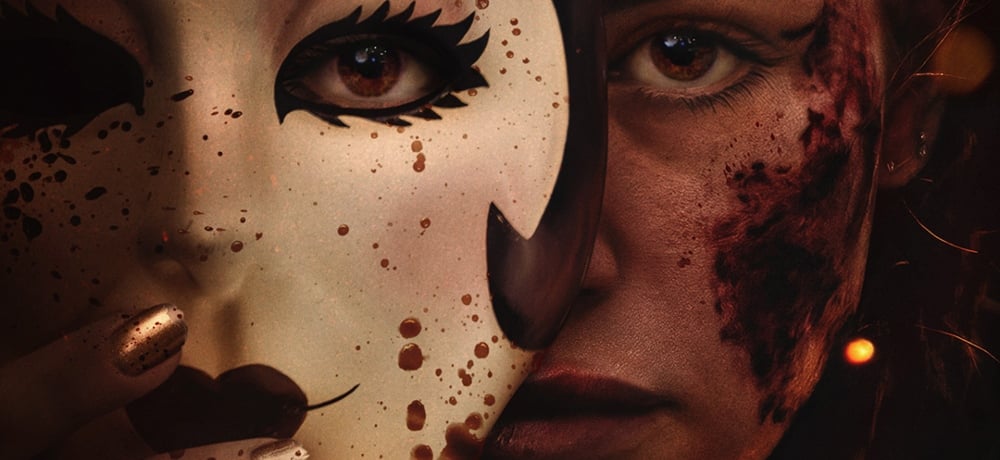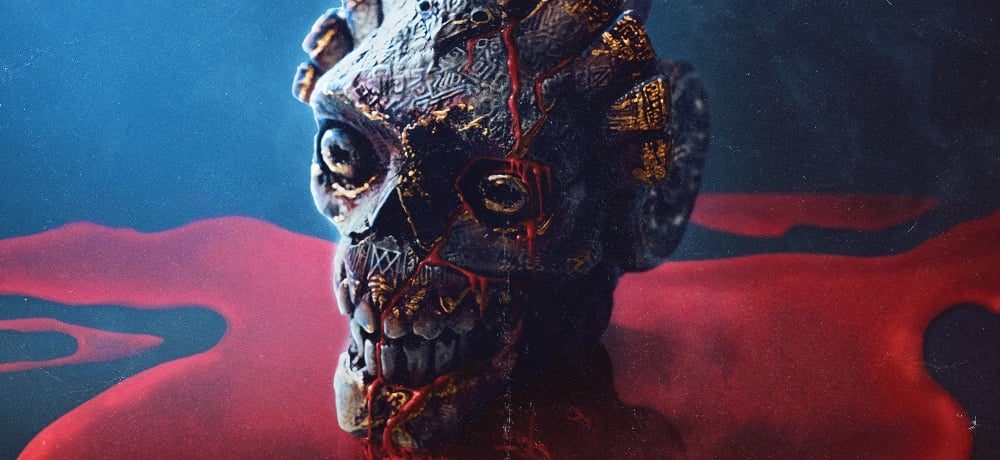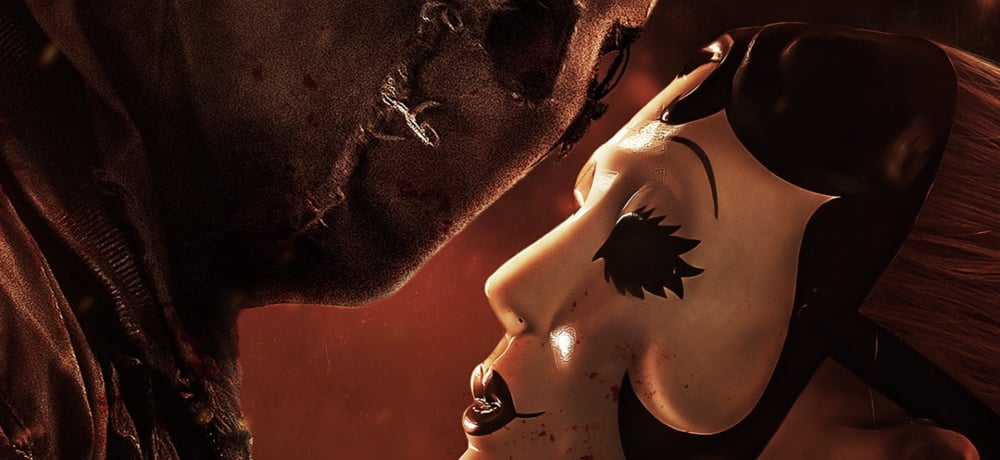





This weekend, Joachim Trier’s Thelma is set to debut in NYC a few weeks ahead of its Los Angeles theatrical release, with a subsequent larger theatrical rollout to follow. The psychological/supernatural horror movie (that’s also a potential Oscar contender, as Norway has submitted Trier’s latest for Best Foreign Language consideration) explores the triumphs and tribulations of a young woman (Eili Harboe) who realizes that she wields fantastic powers after her sexual awakening triggers some strange events that cannot be otherwise explained. As Thelma struggles to come to terms with just who she is (on various levels), she discovers that perhaps the greatest power she could ever possess is freedom over her own life.
Daily Dead recently spoke with Trier about Thelma, and he discussed pushing the boundaries of “human horror,” working with Harboe, and the challenges he faced while crafting his ambitious coming-of-age tale.
Congratulations on Thelma, Joachim. There’s a lot that I want to talk about with you, but I have to say that the one thing that really stuck with me with this film was the scene at the lake, because it’s not particularly gory or visceral, but it’s one of the most disturbing shots I’ve seen in a movie all year. And that’s a testament to what you were able to create with the tension and the atmosphere in this film. But man, that shot just shook me to my core in a way I was not expecting.
Joachim Trier: Thank you! I guess I should jump in there because that's a really amazing compliment. We were doing human horror, and so it's not about monsters or blood and gore and jumps. It’s more about those things that we are all really afraid of, losing control over our bodies, how bad a family dynamic can really turn. What if we hurt someone that we love? Those kinds of dilemmas that I think are horrific enough, but then putting it into a supernatural universe so we can turn up the loud speaker a bit on things that I hope are relatable human problems, but done in this kind of larger than life context.
What was your process with co-writer Eskil [Vogt] in terms of going through the different ideas that Thelma goes through in this? I thought the idea of using this religious suppression to keep her problems under the surface was interesting, and then seeing how that all breaks down by the end was horrifying but uplifting in some ways. We've seen a lot of these ideas in different movies before, but I think the way you and Eskil put them together here feels very different.
Joachim Trier: The religious backdrop was more of a plot thing to me than anything, while I feel a more central theme we want to express had more to do with reaching autonomy and accepting yourself and trying to look at those things. But we're big film geeks, Eskil and I. We watch a lot of different types of movies, but we also have a love for Italian giallo, as well as ’60s, ’70s, and ’80s horror movies. We also love Japanese manga. We're very interested in that because we grew up reading a lot of comic books, as well as Norwegian fairy tales, ghost stories, Alice in Wonderland, revenge movies from America, Stephen King—pretty much anything we could and can absorb, we wanted to experience it all.
We went to a gig with John Carpenter while we were writing this film, and so we just let ourselves be inspired by a lot of the stuff that were the mysteries of our own childhoods and adolescence. All those things that made us scared, we wanted to see if we could find a way to get back into that, but still do it as a contemporary story, where we’re inspired by the past, but not getting stuck in a retro universe. So that was really inspiring to liberate ourselves and try to conjure up more subconscious horror, horrific situations, and images to start the writing process this time around.
The character of Thelma is such a beautifully written character and Eili does such a wonderful job with her, too. Can you talk about creating this protagonist in these situations where, under normal circumstances, you'd consider her the villain? With Thelma, though, you're so connected to her emotionally through this story that it just feels like a girl who's really struggling, more so than her intentionally trying to be this bad person.
Joachim Trier: Thank you for that perspective. We wanted people to get involved and to be rooting for Thelma, and for the horror to come from within rather than to make evil antagonists. We wanted to try to create a more existential dilemma with her, and to make a horror film that way so, as you said, the idea that your true passions or true will is actually beyond who you think you are. Do you really dare be who you want to be? The film has a lot of relatable issues to some extent for most people, in that we have these deeper things that we have to accept to be our full selves, and that always can bring into question moral perspectives as well.
But I also wanted Thelma to be an empowering story, not like a victimization of a young woman. We've seen that too much in horror or supernatural movies, where either the girl is the trophy, or she is the victim, or she's stigmatized and it ends badly. I wanted us to be rooting for the person who feels like a freak, and doesn't know how to accept herself, and to get people into that state of mind. Movie theaters are great because you get to be in the dark and we get to allow ourselves to feel complicated emotions while watching something and it's a fun thing to try to achieve.
Working with Eili was just a wonderful experience because she's not only very brave in doing all her own stunts, and being underwater, and acting with snakes, but she's also very smart and has interesting perspectives about how to keep the ambivalence of the audience understanding its place, to make it more intriguing. She was also very firm in her beliefs of not making Thelma a victim. It was very important to her, and I'm very glad we saw eye to eye on that. I think we had a very good collaboration together.
I know that you guys shot this over in Norway and I'm curious how that experience was, because I don't know a lot about the filmmaking community there. Do you guys have a really good infrastructure for independent movies there?
Joachim Trier: Oh yes. This film was financed out of Sweden, Norway, Denmark, and also from France. We have a very good infrastructure for financing European films here. In the past, all my films have done fairly well internationally, so there was already an international audience there, which helps with us bringing money back for producing new things. The real challenge with this was that even though we have great collaborators in several countries, we were doing something very ambitious in terms of the visual effect elements. The effects and digital side of this film is very ambitious.
And of course we don't have a Hollywood budget, even though we want to achieve the same type of effect. So we were very fortunate to have had this collaboration between all these great companies in Denmark, Sweden, and Norway that came on board, and just really gave us more than we paid for, to say the least. It allowed us to keep that ambition alive, of doing effects that look real rather than just stylized, larger-than-life, comic book-like digital shots. There are 200 digital shots in the film, and I hope they don't look too obvious, but rather, just feel like they are a part of the story.
They do, and especially the scene with the glass breaking—that was just insane. It was amazing. I’ve seen shots that have attempted to do that with huge budgets that weren’t able to pull it off as successfully as you guys did here.
Joachim Trier: Thank you! That was a tough one and it took months to make. The film went over in terms of time, but sometimes to have more time makes it possible to come in on budget because it gives people the opportunity to do it when they have time. Since we had so many of the best people working on the effects shots, we sometimes had to be patient. But it was all worth it. I'm very happy that you brought that moment up though, because I think that shot is incredible. It was done by a company called Ghost VFX in Copenhagen and I was so very impressed with them in terms of everything they were able to achieve for Thelma.
---------
In case you missed it, read Heather's Fantastic Fest review of Thelma.
Photo Credit: Above photo from IMDb.